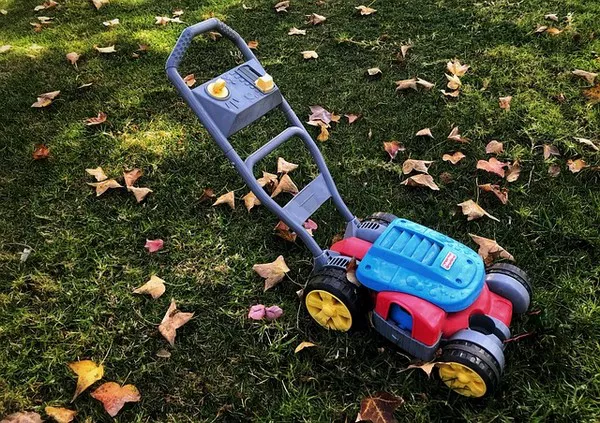Maintaining a pristine lawn is a common priority for many homeowners and gardening enthusiasts. A crucial aspect of achieving this goal is the regular use of a lawn mower. However, one question frequently arises: Do you need to clean your lawn mower after every use? This article delves into the importance of lawn mower maintenance, the benefits of regular cleaning, and best practices to keep your equipment in top condition.
The Importance of Lawn Mower Maintenance
Lawn mowers, whether gas-powered, electric, or manual, are mechanical tools that require regular upkeep to function effectively. Proper maintenance ensures longevity, optimal performance, and safety. Over time, grass clippings, dirt, and debris accumulate on various parts of the mower, which can lead to a host of problems if not addressed.
Performance and Efficiency: A clean lawn mower operates more efficiently. Grass clippings and debris can clog the cutting deck, reducing the blade’s effectiveness and causing the mower to work harder than necessary. This extra strain can lead to higher fuel consumption in gas mowers and reduced battery life in electric models.
Longevity of Equipment: Regular cleaning helps prevent rust and corrosion, especially on metal parts. Moisture from grass and soil can accelerate the deterioration of these components, leading to costly repairs or replacements.
Safety: A clean mower is a safer mower. Debris buildup can cause moving parts to malfunction, increasing the risk of accidents. Additionally, grass clippings can create slippery surfaces, posing a hazard during operation or maintenance.
Environmental Considerations: Proper maintenance and cleaning ensure that the mower runs efficiently, reducing emissions and fuel consumption in gas-powered models. This contributes to a lower environmental footprint.
Benefits of Cleaning After Every Use
While it might seem excessive, cleaning your lawn mower after each use offers several significant benefits:
Prevents Buildup: Regular cleaning prevents the accumulation of grass, dirt, and debris. This not only keeps the mower looking clean but also ensures that it operates efficiently.
Easier Maintenance: Routine cleaning makes other maintenance tasks easier. For instance, changing the oil, replacing air filters, and inspecting the blade are more straightforward when the mower is clean.
Spot Issues Early: Frequent cleaning allows you to inspect the mower closely and identify potential issues before they become major problems. This proactive approach can save you time and money on repairs.
Enhanced Cutting Quality: A clean mower blade cuts grass more effectively. Grass buildup on the blade can lead to uneven cutting, resulting in a patchy lawn. By cleaning the blade after each use, you ensure a clean, precise cut every time.
Best Practices for Cleaning Your Lawn Mower
Cleaning a lawn mower doesn’t have to be a daunting task. By following some best practices, you can efficiently maintain your equipment and keep it in excellent condition.
Safety First: Before cleaning, always disconnect the spark plug in gas mowers or unplug electric mowers to prevent accidental starts. For battery-powered models, remove the battery.
Cleaning the Cutting Deck:
- Gas and Electric Mowers: Tilt the mower to access the cutting deck. Use a brush or scraper to remove grass clippings and debris. For stubborn buildup, a hose can be used to rinse the deck, but ensure it’s thoroughly dry before storing to prevent rust.
- Manual Reel Mowers: Use a brush to clean the blades and reel. Avoid using water to prevent rusting.
Blade Maintenance: After cleaning the deck, inspect the blade for nicks and dullness. A sharp blade is crucial for a clean cut. Sharpen or replace the blade as needed.
Cleaning the Air Filter and Cooling Fins: For gas mowers, clean the air filter regularly to ensure optimal engine performance. Also, remove debris from the cooling fins to prevent overheating.
Check the Wheels and Chassis: Grass and debris can get stuck in the wheels, affecting maneuverability. Clean the wheels and check the chassis for any buildup.
Wipe Down the Exterior: Use a damp cloth to wipe down the exterior of the mower. This not only keeps it looking new but also allows you to inspect for any loose or damaged parts.
Storage: Store the mower in a dry, sheltered area to protect it from the elements. Consider using a mower cover for added protection.
Frequency of Deep Cleaning
While cleaning after every use is beneficial, a more thorough cleaning regimen is also recommended periodically:
Weekly or Bi-Weekly: Depending on usage, a deeper cleaning every one to two weeks is advisable. This involves more detailed attention to parts like the air filter, spark plug, and blade.
Seasonal Maintenance: At the beginning and end of the mowing season, conduct a comprehensive maintenance check. This includes changing the oil in gas mowers, replacing spark plugs, inspecting the drive belts, and giving the entire mower a thorough cleaning.
See Also How Lawn Mower Blades Cut Grass
Conclusion
Cleaning a lawn mower after every use might seem like an extra chore, but the benefits far outweigh the effort. Regular cleaning ensures that your mower operates efficiently, lasts longer, and remains safe to use. By incorporating simple cleaning practices into your routine, you can enjoy a well-maintained lawn mower that consistently delivers a pristine cut.
Remember, the key to effective lawn mower maintenance is consistency. By dedicating a few minutes to cleaning after each use and following up with deeper cleaning periodically, you ensure that your mower remains in optimal condition, providing reliable performance for years to come. Whether you’re a casual gardener or a dedicated lawn care enthusiast, the extra effort in maintaining your lawn mower is a worthwhile investment in both your equipment and the beauty of your lawn.

